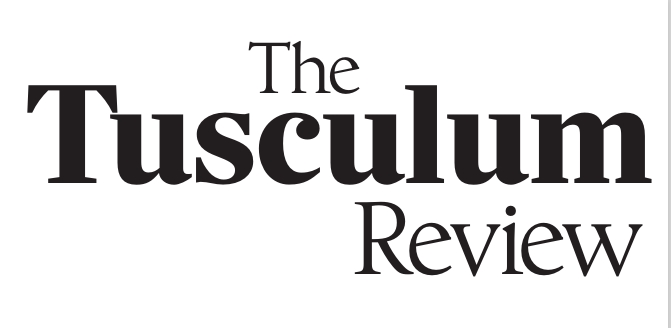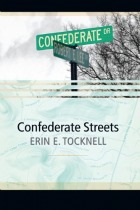Confederate Streets by Erin E. Tocknell. Hopkins, MN: Benu Press. 2011. Pp. 140. $16.95
Erin E. Tocknell sensitively gives voice to the thirty-something white middle-class experience of race as she tells the story of her own racial awakening in her Nashville childhood in her collection of essays, Confederate Streets. Tocknell keenly observes the racial currents still at work in her hometown: the ways the movement is (and is not) commemorated, the effects of busing, and the segregated music scene. She seeks out untold stories, discovering the buried rift in her childhood church over civil rights and the pastor who championed them.
Not every essay in the collection directly engages the issue of race; instead, some pieces connect to a larger thesis about the stories that shape a place. “What Trees Become” explores the way that history embeds itself into a house. “Rowing Through the Ruins” gives a river view of the industrial ruins of Pittsburgh. The complicated ethics of observing and reporting the stories of a place come out in “That’s What We’re Doing Here,” a piece about Tocknell’s experiences as a small-town newspaper reporter.
Tocknell’s style is conversational, and her observations are acute. She writes, “I hope this reads as praise, not for a perfect world, but for ours,” and it does. The book is clear-eyed but hopeful.
Confederate Streets won the 2009 Benu Press Social Justice and Equity Award in Creative Non-Fiction.
Erin E. Tocknell grew up in Nashville but received all of her post-secondary education in or near Pittsburgh, earning her undergraduate degree from Carnegie Mellon in 2000 and her M.F.A. from West Virginia University in 2007. A winner of the AWP Intro Award in 2007, she has been published in Tampa Review, The Southern Review, Ancient Paths, and Oakland Review. She lives in Chattanooga, Tennessee, where she teaches at The McCallie School.
________________________
Kirsten Eve Beachy is a TTR Contributing Editor.



Leave a Reply